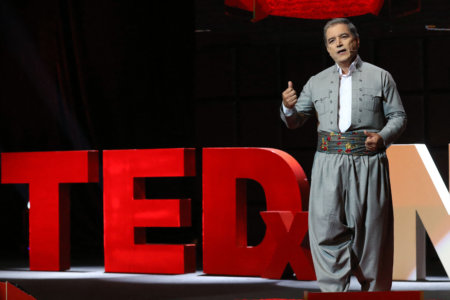
Students mostly choose majors for job security over interest. Much of this has to do with the prospect of the upcoming recession and the need to become more employable as 2023 approaches. This is completely understandable, especially if you are working towards a specific financial goal.
On the other hand, some students pursue a degree based on their passions. They seek out how to improve particular skills or interests out of pure desire and love for a subject. They centre their job searches around this passion and actively chase opportunities to ensure this becomes a reality.
Either way, both sets of students share one thing in common: the need to constantly improve at a particular skill or task. This is especially true if you are being graded or judged for your performance, such as during exams or tests. In this, you might be pushed to work extremely hard to get better at what you’re doing.
@whitneyhansonpoetrychase passion♬ MEAN! – Madeline The Person
Still, you might find that you’re working extremely hard only to see little to zero results. This might be frustrating, especially if you’re putting in more effort than you usually would to perform up to the task. You might be wondering how to improve on these without sacrificing more of your time and energy.
Growth mindset speaker Eduardo Briceño felt the same. “Some time ago, I came to a realisation that I wasn’t getting much better at the things I cared most about, whether it was being a husband or a friend or a professional or teammate, and I wasn’t improving much at those things even though I was spending a lot of time working hard at them,” he said in a TED Talk.
He conducted some research into this and found that most people tend to alternate between two zones: the learning zone and the performance zone. The first, he says, is when we do activities designed to help us improve at a task. The second stems from the desire to focus on what we have already mastered and reduce mistakes in executing them.
The performance zone maximises our immediate performance, while the learning zone maximises our growth and our future performance,” he explained. “The reason many of us don’t improve much despite our hard work is that we tend to spend almost all of our time in the performance zone. This hinders our growth, and ironically, over the long term, also our performance.”

Move away from results-based work towards exploring. Source: Andrew Neel/Pexels
Why are we so focused on performance?
Briceño says our performance-focused attitude stems from one thing: being in unnecessarily high-stakes environments. “We create social risks for one another, even in schools which are supposed to be all about learning,” he explains. “Every minute of every day, many students in elementary schools through colleges feel that if they make a mistake, others will think less of them.”
This creates an eager desire to ensure all work — from tests to homework — is submitted to the best of their ability. Most importantly, students aim to ensure they have the correct answers, all the time.
“They learn that mistakes are undesirable inadvertently when teachers or parents are eager to hear just correct answers and reject mistakes rather than welcome and examine them to learn from them, or when we look for narrow responses rather than encourage more exploratory thinking that we can all learn from,” Briceño says.
“When all homework or student work has a number or a letter on it and counts towards a final grade, rather than being used for practice, mistakes, feedback and revision, we send the message that school is a performance zone.”
Searching for how to improve, then, become meaningless precisely because such environments do not cultivate safe spaces to fail, learn, and try again.

Only with intentional practice can students improve their performance. Source: Pixabay/Pexels
How to improve: Learning over doing
How to improve at things you care about, then, is all about shifting one’s mindset towards learning again. The #1 method behind this? Making it a habit to explore one’s own relationship to a skill or subject rather than focusing on getting positive results all the time.
“When Beyoncé is on tour, during the concert, she’s in her performance zone, but every night when she gets back to the hotel room, she goes right back into her learning zone,” explains Briceño. “She watches a video of the show that just ended. She identifies opportunities for improvement, for herself, her dancers and her camera staff.
“And the next morning, everyone receives pages of notes with what to adjust, which they then work on during the day before the next performance. It’s a spiral to ever-increasing capabilities, but we need to know when we seek to learn, and when we seek to perform, and while we want to spend time doing both, the more time we spend in the learning zone, the more we’ll improve.”
Such a scenario can translate to your studies, too. Think about the programme you’re studying for. Have you taken the time to identify any weaknesses in your knowledge? Will you dedicate your hours to intentional practice?
This, Briceño says, is the ticket to real confidence — giving yourself the space to ask yourself where you went wrong and how to improve on it.
Interested to learn more? Listen to Briceño’s full TED Talk here.










